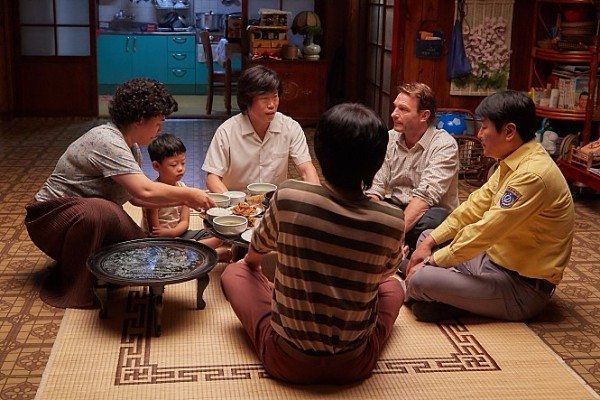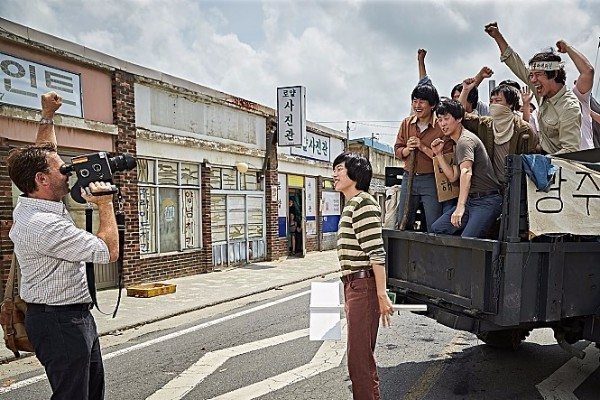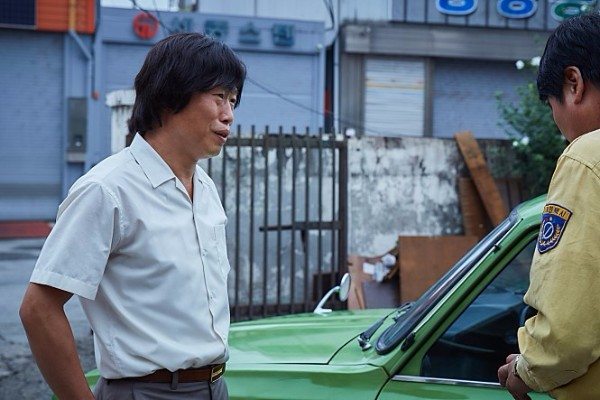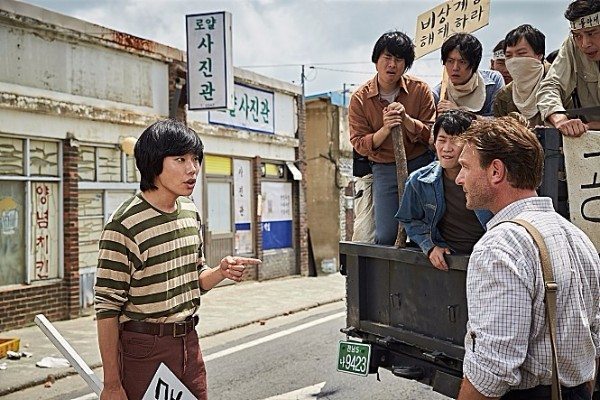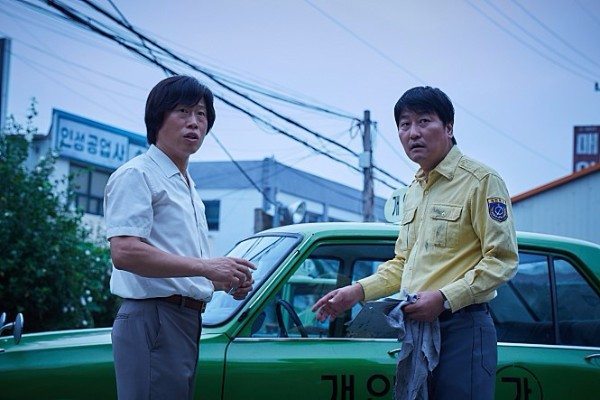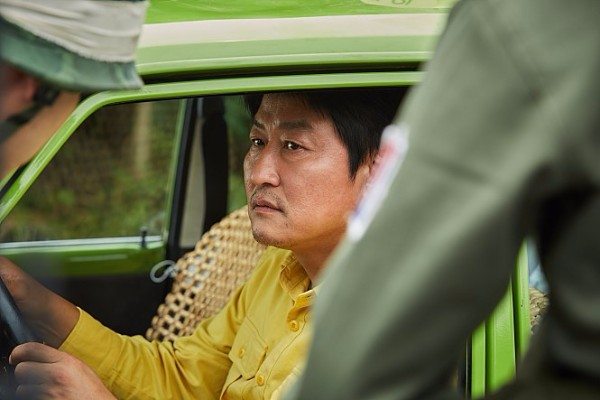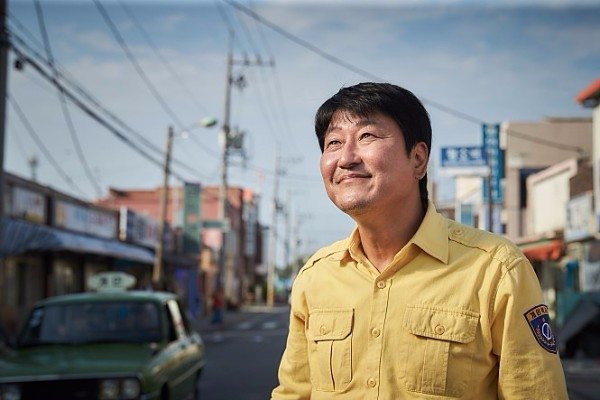![]()
The Song Joong-ki, So Ji-sub, and Hwang Jung-min film Battleship Island was the main Korean blockbuster I was looking forward to watching this summer, but news just came out that Song Kang-ho’s (Age of Shadows) A Taxi Driver has leapt ahead of its formidable competitor to become No. 1 at the box office.
Song Kang-ho plays the titular taxi driver, Kim Man-sub, who is given 100,000 KRW (approximately $88, which was a large sum of money in those days) to drive a German reporter all the way from Seoul to Gwangju in the May of 1980, when the democratic uprising against the militaristic authoritarian regime was taking place.
Thomas Kretschmann (Avengers: Age of Ultron) plays the German reporter, Jurgen Hinzpeter, and Ryu Joon-yeol (Lucky Romance) and Yoo Hae-jin (Luck-Key) play the student and a different taxi driver he meets in Gwangju, respectively. The story is based on a true story, and Hinzpeter was one of few reporters whose coverage of the Gwangju uprising got out of Korea past strict monitoring, which was seen internationally and exposed the government’s armed attacks on civilian protesters.
The trailer begins with our ordinary ajusshi taxi driver from Seoul, Song Kang-ho. He grumbles at the traffic jam when the road is blocked by college protests, and ends up speeding through narrow alleyways. His car gets damaged, but being the miser he is, when the repairman asks for a discounted price of 5,000 KRW, Song Kang-ho only gives him 3,000 KRW.
Then he suddenly gets a request to drive a foreigner for a day for 100,000 KRW, and he thinks he’s hit the jackpot, because he has overdue rent to pay at home. So, using garbled English, he gestures for Hinzpeter to follow him. Their way to Gwangju is merry, and they run into Ryu Joon-yeol’s character, who was initially a part of a group of student demonstrators but ends up tagging along with Hinzpeter to Gwangju because he can speak bits of English.
They end up having dinner in Gwangju taxi driver Yoo Hae-jin’s house, when they suddenly hear gunshots firing. Suddenly, the music turns from bright to ominous, and the characters all quickly duck down. When they peer outside, they see fires and bombs being dropped near the Gwangju broadcasting station. Men who look like high-ranking government officials deliberate in a darkened room about the German reporter who was last known to be heading for Gwangju, because if he gets hurt, international relations could become complicated.
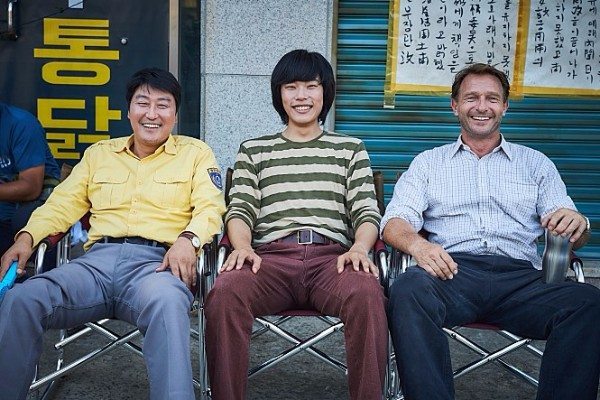
The copy that flashes onscreen between scenes says: “May 1980 in Gwangju, a taxi driver and a German reporter.” Then Yoo Hae-jin tells Song Kang-ho that he’s heard that Seoul taxis are being targeted from the air by bombers, and that instills panic. Song Kang-ho tries to rush Hinzpeter into leaving Gwangju. In the backseat, Ryu Joon-yeol asks the reporter, “Promise me…” and Hinzpeter reassures him that he’s not alone.
As Song Kang-ho is leaving, Yoo Hae-jin yells from his taxi, “Don’t worry about this place.” In the last scene, a tear-stricken Song Kang-ho says to camera, as if talking to his daughter at home, “Daddy left his passenger…”
On August 6 alone, 1,094,127 people came to watch the film, bringing up the cumulative ticket sales to 4,362,305 for its first weekend. Just to give a sense of perspective, Battleship Island recorded 4,065,535, and the current top record-holder, Roaring Currents, had 4,767,617 sales its first weekend.
A Taxi Driver will premiere in the U.S. on August 11 in select theaters.

